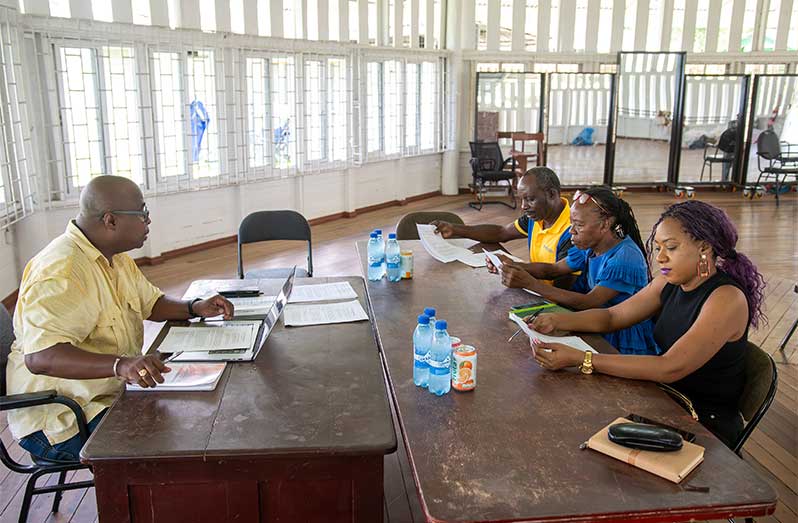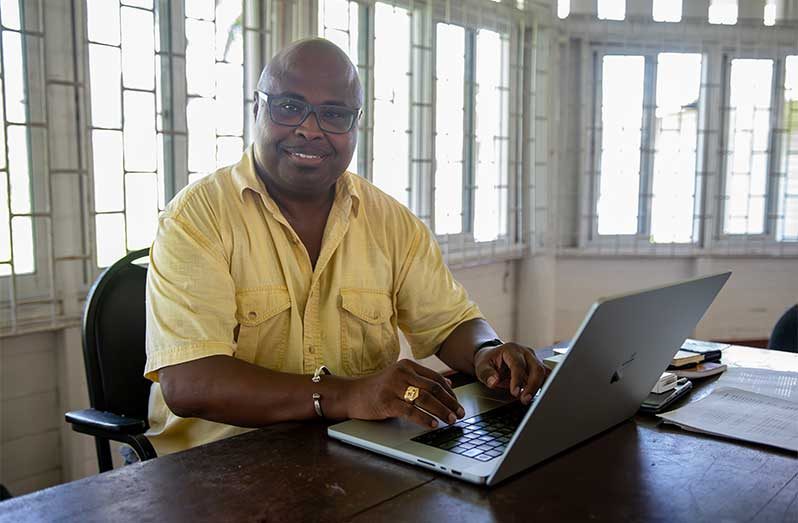— Ph.D candidate, Edwin Mansook, advances dialogue on cultural revitalisation
CONTINUING his work on the preservation and revitalisation of Guyana’s masquerade traditions, Ph.D candidate in Ethnomusicology at Memorial University of Newfoundland, Canada, Edwin Mansook, on Sunday, hosted a Research Roundtable on the Afro-Guyanese Masquerade Traditions at the National School of Dance, National Park, Georgetown.
The session followed an educational research workshop held on July 9, 2025, at Queen’s College, which centred on strategies to breathe new life into the centuries-old masquerade performance culture.
Mansook said the aim of combining academic research with cultural preservation is to develop collaborative and sustainable approaches for the safeguarding and transmission of masquerade knowledge, while ensuring the cultural contributions of practitioners are respected.
With nine participants, the roundtable engaged stakeholders in education, including representatives from the University of Guyana, members of the public, mass curators, and cultural facilitators. The ultimate goal, Mansook explained, is to create strategies with a focus on cultural policy that acknowledges and supports marginalised cultural practitioners.
“When policy does not reflect this particular cadre of community members, their voices are unheard. The aim is to have the lived experiences of the mass curators shared in this forum, so that policymakers can capture these essences and translate them into meaningful change,” Mansook said.
He noted that without policies reflecting these realities, change in the sector will remain elusive. Importantly, he emphasised that the labour of masqueraders should be viewed and valued as cultural capital.

The session was divided into five sections: Introduction, Cultural Identity and National Identity, Disparities and Marginalisation, Action Oriented Dialogue and Cultural Policy, and the wrap-up.
Under each of these, discussions ranged from issues of belonging and respectability, viewing masquerade as labour, reflecting on how labour is perceived locally, and leveraging social, economic and cultural frameworks and policies to support masquerade cultural expressions as legitimate professional labour and a sustainable cultural form.
Mansook stressed that while he has developed a suggested policy framework, it remains open for additions or revisions from participants.
The suggested policy framework has four points: access and inclusion- who gets support, where to get funding; education and transmission- are Afro-Guyanese traditions and community-derived strategies taught in schools, do educational programmes integrate performance and embodied learning into school curricula; funding and infrastructure- are there grants, festivals, rehearse spaces or institutions that support these practices; and reciprocity and exchange- are cultural initiatives rooted in an ethic of reciprocity, where communities are active partners,
beneficiaries, and co-creator, rather than passive subjects of study, with conscious focus on addressing power dynamics.
Mansook underscored that a cultural policy framework grounded in social justice creates environments where traditions are not simply viewed as aesthetic expressions, but as sites for inquiry,
agency, and social transformation, with mutual respect for empowering marginalised groups.



.jpg)








